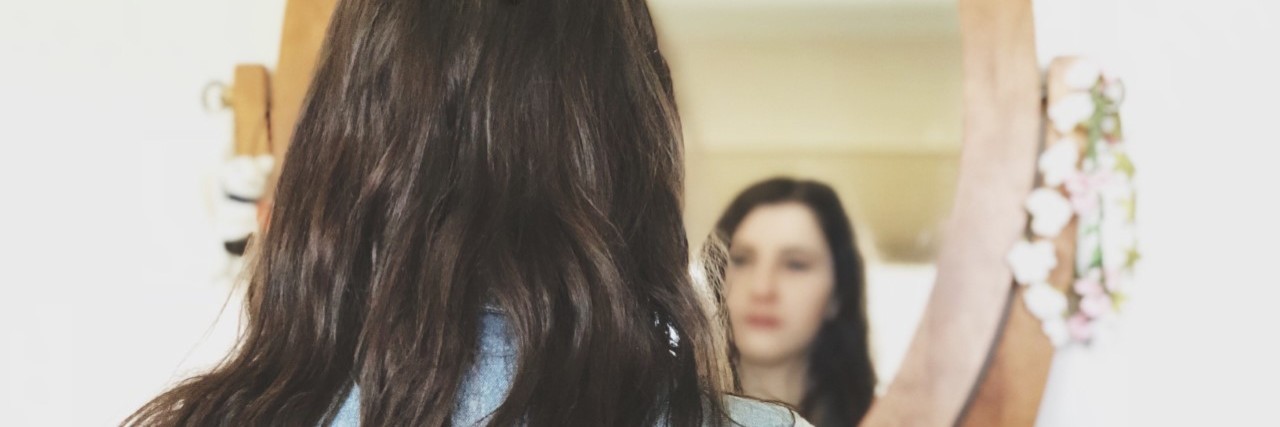I was listening to a podcast where I was asked the question, “Is there a ‘who you were pre-illness,’ to a ‘who you are now’? Have your interests changed? Do you still want the same things in life?”
My answer was easy. No, I am not who I am pre-illness. No, I no longer want to be a fashion photographer. If I miraculously healed, I wouldn’t go back to school for the same program. I no longer have the same friends. The people closest to me are not the same people as they were. And that’s OK.
It’s funny, because when you have a debilitating chronic illness, your life kind of comes to a stand still. But then you look back, and even though not much has changed over the years, there has definitely been a change in the person you are.
Friends get slowly lost when you become ill, especially with a mystery illness. And I no longer feel any resentment toward that. It’s understandable. You stop being able to do the fun things you were once able to do together, and what you’re going through is so foreign to old friends that they don’t necessarily know how to fit into this life of yours that has changed. That doesn’t make it less painful, but over time you begin to gain a different perspective.
I used to be super passionate about becoming a fashion photographer. My love of photography started in high school, and for years I did photo shoots with my friends, even doing photography for some small businesses. I started school for professional photography in college, and it was after the first semester that my illness hit. I look back now, and I know that if I were to get better, I wouldn’t return to that program. Through these years of illness, I’ve learned that I have other passions. I never know what will remain a hobby and what will develop into a career, but I definitely know those things have changed.
When you’re chronically ill with a life-altering disease, your life starts looking a lot different. Your days become choices, deciding where to spend the energy you have that day. For example, I love makeup, but have seldom been able to do it lately because I’ve chosen not to use all my energy up just getting ready. Days that used to be filled with society’s norms become filled with doctors appointments, procedures, and tests. That beautiful walk in the park on a summer day might not be something in the realm of possibilities.
So with all that, how can it be easy to maintain your identity? Chronic illness does its best to take away your identity. It makes you slowly forget the things you used to love to do, it slowly robs you of the circle of friends you once had, and it makes you question who you even are anymore.
Then
I was very into fashion and makeup. I had great friends that I had sleepovers dates with where we’d stay up until late eating snacks and chatting about everything, from TV shows to school to personal matters. I was going to be a fashion photographer. I prided myself on that.
Now
I see any friends on FaceTime the majority of the time. I’m constantly taking meds to curb symptoms. I can no longer talk to my old friends in that same relatable way. They work or go to school, and that is their life. And as much as I love them and wish it was my life too, it’s not. I’m happy to say I haven’t lost my love for fashion and makeup. I’m even considering getting back into photography as a hobby. However, I’ve discovered my true passions; writing and advocating for invisible illnesses. Trying to help people who are on a similar path that I walked. Diving into the type 1 diabetes community.
So in a way, my illness became incorporated into my identity. My passions changed because the things I felt strongly toward changed. And that’s bound to happen. As years go on with a chronic illness, and you learn more and more about disability, you find yourself interested in different things. Regardless of chronic illness, actually, the mind and soul are always growing and learning. It’s never-ending.
All in all, I think it’s OK to not maintain your identity after becoming chronically ill. I think your identity might have changed anyway, but any major life event can have an effect on who you are as a person, and chronic illness certainly is a major life event.
But there can come a point where you no longer recognize yourself. You know longer know who you are apart from your illness. Try to remember who you are. You have an illness, but you are not an illness. You are a person with a favorite color, and a song that makes you smile every time you listen to it. You know what kind of day is your perfect weather. You have a favorite food that makes your lips water. You have more of an identity than you might think you do. Reach for it.

